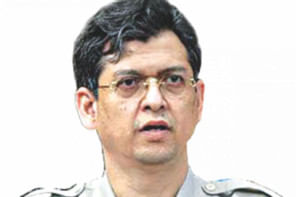Who needs to file wealth statement?

The National Board of Revenue (NBR) is expected to place a new income tax bill in parliament today in an effort to modernise the direct tax system.
The new law, among others, is likely to seek mandatory submission of wealth and liability statements for taxpayers, including persons who have wealth of over Tk 40 lakh.
The draft law also seeks to make mandatory filing of wealth reports by those who became owners of any asset abroad at any time in a year in order to ascertain the total wealth of taxpayers in the country.
Submission of wealth statements are likely to be necessary for individuals who will travel abroad at any time of the year for purposes other than treatment or religious reasons, according to the draft law.
Asked, a senior official of the NBR said taxpayers would be required to submit their wealth statements along with tax returns once a year, just as many have to do now.
And they will not need to show proof of return filing at the immigration checkpoints while traveling abroad if the proposal gets the nod from the parliament, he said.
"There is no provision in the law that seeks to empower immigration officers to check if any taxpayer has filed wealth statements, let alone gaining knowledge of the wealth of the person," said the official of the income tax department of the NBR.
Apart from this, owners of motor vehicles, persons investing in houses, property or apartment in any city corporation, and directors of companies will be required to file asset and liability statements, according to the draft law.
As per plan, all state employees will have to file statements of their assets and liabilities along with their tax returns.
The draft law also seeks to require taxpayers to mention their wealth and liabilities within and outside Bangladesh in their tax returns.
The official said this provision would be applicable for those having assets abroad but who have less than Tk 40 lakh in wealth in Bangladesh.
Non-resident Bangladeshis are also likely to need to inform of their assets inside Bangladesh in their returns too.
Foreigners staying in the country will need to show in the tax returns their assets and liabilities within Bangladesh, according to the draft income tax law.
A taxpayer is also likely to need to file statements of wealth and liabilities of their spouses and underage children if they do not have separate taxpayer identification numbers.
The new income tax law 2023, drafted in Bangla, will replace the existing Income Tax Ordinance 1984, which was formulated by amending the Income Tax Act 1922, once it is approved by the parliament.
The planned law seeks to reduce the discretionary powers of tax officials as much as possible.
The proposed law, among others, has included accounting methods, depreciation and amortisation rules, provisions related to capital gains, income from intangible assets, transfer pricing and alternative dispute resolution provisions.
Once it is passed in parliament, the number of returns that companies would need to file over tax deduction at source will reduce to 12 from 29 in the existing law.

 For all latest news, follow The Daily Star's Google News channel.
For all latest news, follow The Daily Star's Google News channel. 








Comments